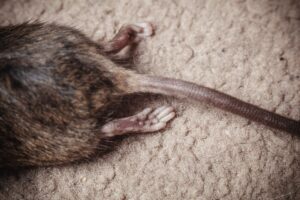 Rodent infestations are a common issue faced by homeowners across the United States, and Georgia is no exception. The warm and humid climate from Atlanta to Athens provides an ideal breeding ground for rodents like rats and mice, which can result in rodent invasions of both attics and basements. These unwelcome guests not only damage property but also pose health risks. Let’s explore the challenges caused by rodent infestations in Georgia’s attics and basements, as well as effective pest control measures to mitigate these problems.
Rodent infestations are a common issue faced by homeowners across the United States, and Georgia is no exception. The warm and humid climate from Atlanta to Athens provides an ideal breeding ground for rodents like rats and mice, which can result in rodent invasions of both attics and basements. These unwelcome guests not only damage property but also pose health risks. Let’s explore the challenges caused by rodent infestations in Georgia’s attics and basements, as well as effective pest control measures to mitigate these problems.
The Menace of Rodent Infestations
Rodents are notorious for their ability to find their way into homes through the tiniest of openings. Attics and basements, often neglected or less frequented, become prime targets for rodent infestations. These creatures seek shelter, nesting materials, and food sources in these areas, wreaking havoc on insulation, electrical wiring, and stored belongings.
Additionally, rodents are potential carriers of diseases that can be transmitted to humans. Hantavirus, leptospirosis, and salmonella are just a few of the health risks associated with exposure to rodent droppings and urine. Therefore, addressing rodent infestations promptly is not just about preserving property but also protecting the well-being of residents.
Common Culprits: Rats and Mice
Two of the most common rodent culprits responsible for infestations in Georgia’s attics and basements are rats and mice. Roof rats and Norway rats are frequently found in attics, where they nest in insulation and create pathways through the materials. These rodents are agile climbers and can breach through openings like vents or damaged roofing. Mice, on the other hand, are smaller but just as destructive. House mice can squeeze through openings as small as a dime, making basements susceptible to their infestations. They contaminate stored food and can even cause structural damage by chewing on wood and insulation.
Effective Pest Control Measures
To combat rodent infestations in Georgia’s attics and basements, a multi-faceted pest control strategy is necessary:
- Sealing Entry Points: The first step in rodent prevention is sealing all potential entry points. Cracks, gaps around pipes, and damaged vents should be repaired promptly to prevent rodents from gaining access.
- Proper Storage: Basements and attics often serve as storage spaces for unused items. To deter rodents, store belongings in sealed plastic containers rather than cardboard boxes, which rodents can easily chew through.
- Trimming Vegetation: Rodents can use overhanging branches to gain access to roofs. Regularly trim trees and shrubs around the home to limit their access routes.
- Using Traps and Baits: Snap traps and bait stations can be effective in reducing rodent populations. Place them strategically along potential rodent pathways, but exercise caution if you have pets or small children.
- Professional Pest Control: For severe infestations, seeking the expertise of a professional pest control service is advisable. They have the tools, knowledge, and experience to assess the extent of the infestation and implement effective eradication strategies.
Rodent infestations in Georgia’s attics and basements can lead to property damage, health risks, and significant inconvenience for homeowners. Addressing the issue as soon as possible with a combination of preventative measures and targeted pest control strategies is crucial for maintaining a safe and comfortable living environment. By sealing entry points, practicing proper storage, and enlisting professional help when needed, homeowners can successfully battle rodent infestations and protect their homes from these unwanted invaders. Pest Force is here to help!
FAQs
How can I tell if I have a rodent infestation in my home?
Signs of a rodent infestation include droppings, chew marks on food packaging or structures, nests made of shredded materials, and unusual scratching noises in walls or ceilings. Unexplained damage to wires and insulation in attics or basements can also indicate rodent activity.
Are rodents in the home dangerous to my health?
Yes, rodents can pose health risks. They carry diseases such as hantavirus, salmonella, and leptospirosis, which can be transmitted to humans through contact with their urine, droppings, or saliva. Inhaling particles from dried rodent urine can also lead to respiratory issues.
What should I do if I find a dead rodent in my home?
If you find a dead rodent, it’s important to handle it with caution. Wear gloves and use disposable tools to pick up the carcass, then double-bag it and dispose of it in an outdoor trash bin. Thoroughly wash your hands after handling the carcass and the materials you used.

